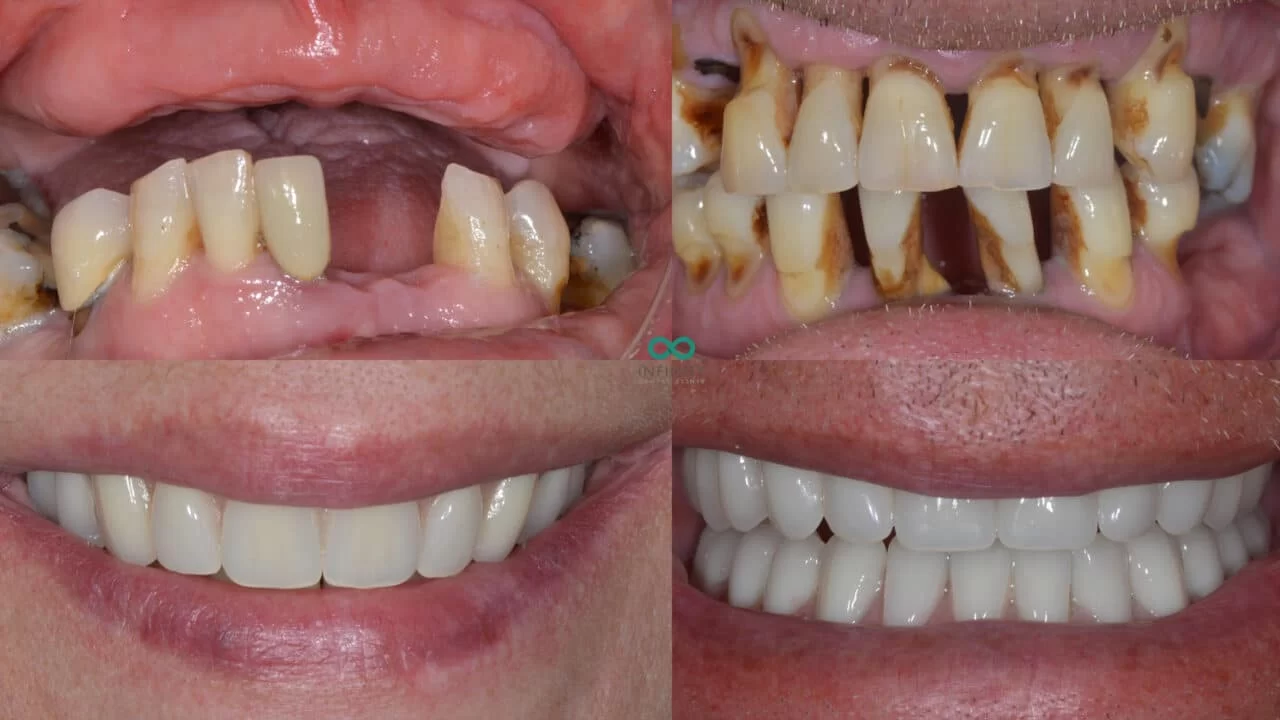
Dental Implants vs Dentures: What’s the Best Option for Your Smile?
- Understanding Dental Implants
- Exploring Dentures
- Pros and Cons of Dental Implants
- Pros and Cons of Dentures
- How to Choose Between Implants and Dentures
- Maintaining Your Smile After Dental Restoration
Understanding Dental Implants
Dental implants are a popular and effective solution for replacing missing teeth. Unlike dentures, which rest on the gums, implants are surgically placed into the jawbone, providing a permanent and stable foundation for replacement teeth. The implant itself is made of titanium, a material that is biocompatible and integrates well with bone tissue. Once the implant has fused with the bone, a crown is placed on top, giving the appearance and function of a natural tooth.
One of the biggest advantages of dental implants is that they help preserve bone structure by stimulating the jawbone, preventing it from deteriorating over time. Implants also provide superior comfort and functionality compared to dentures, offering a more natural feel and allowing you to eat, speak, and smile with confidence.
Exploring Dentures
Dentures are a traditional option for replacing missing teeth. Unlike implants, dentures are removable and sit on top of the gums. They are typically made of acrylic or a combination of acrylic and metal, and they can replace a full arch or just a few missing teeth. While dentures do not require surgery like implants, they can take time to adjust to and may feel less stable compared to implants.
There are two main types of dentures: full and partial. Full dentures replace all teeth in a given arch, while partial dentures are used to replace just a few missing teeth, fitting around remaining natural teeth. Dentures can be an excellent option for those with significant tooth loss but may require more maintenance over time.
Pros and Cons of Dental Implants
Dental implants are often seen as the gold standard for tooth replacement. However, like any dental treatment, they come with their own set of advantages and challenges.
Pros of Dental Implants
- Durability: Dental implants are designed to last for decades, sometimes even a lifetime with proper care.
- Natural Look and Feel: Implants mimic the appearance and function of natural teeth, making them incredibly lifelike.
- Bone Preservation: Implants stimulate the jawbone, helping to prevent bone loss and maintain facial structure.
- Comfort and Stability: Unlike dentures, implants are permanent and do not shift or cause discomfort when eating or speaking.
Cons of Dental Implants
- Surgery Required: The placement of implants requires surgery, which may be a barrier for some patients.
- Higher Cost: Dental implants are generally more expensive upfront compared to dentures.
- Longer Treatment Time: The process of getting implants involves multiple appointments and can take several months to complete.
Pros and Cons of Dentures
Dentures have been a reliable solution for replacing missing teeth for centuries. Here’s a closer look at the benefits and drawbacks of dentures.
Pros of Dentures
- No Surgery Required: Dentures are a non-invasive option that do not require surgery, making them an ideal choice for many people.
- Affordable: Compared to implants, dentures are generally more budget-friendly and accessible to a wider range of people.
- Quick Treatment Time: Dentures can be fabricated and fitted relatively quickly, with less time required compared to implants.
Cons of Dentures
- Less Comfortable: Dentures can feel bulky or uncomfortable, and they may slip or shift in the mouth.
- Bone Loss: Unlike implants, dentures do not stimulate the jawbone, which can lead to bone loss over time.
- Maintenance: Dentures require regular cleaning and may need to be replaced every few years due to wear and tear.
How to Choose Between Implants and Dentures
When deciding between dental implants and dentures, there are several factors to consider:
1. Your Budget
Dental implants are typically more expensive than dentures, both in terms of the initial procedure and long-term maintenance. If cost is a major concern, dentures may be the more affordable option.
2. Your Health and Medical History
Dental implants require healthy jawbones to be successful. If you have significant bone loss or certain health conditions, you may not be a candidate for implants. Dentures, on the other hand, can be used by almost anyone, even with bone loss.
3. Desired Outcome
If you’re looking for a long-term, stable solution that feels and functions like natural teeth, implants may be the best option. However, if you need a quick, affordable solution for replacing missing teeth, dentures can provide an effective alternative.
Maintaining Your Smile After Dental Restoration
Whether you choose dental implants or dentures, proper care is essential for maintaining your new smile. For dental implants, regular brushing, flossing, and routine dental checkups are important to keep the area around the implant healthy. For dentures, cleaning and soaking them daily is crucial to avoid plaque buildup and maintain comfort.
If you're still uncertain about whether dental implants or dentures are right for you, consider consulting with a dental professional. At Dentistry Toothtruth, we offer expert advice and a range of products to help you make the best decision for your oral health and smile.







 Dental Group NY4.0 (266 review)
Dental Group NY4.0 (266 review) Western Iowa Endodontics3.0 (16 review)
Western Iowa Endodontics3.0 (16 review) Central Ohio Dental Associates4.0 (125 review)
Central Ohio Dental Associates4.0 (125 review) Dr. Ira G. Spiro, DDS5.0 (38 review)
Dr. Ira G. Spiro, DDS5.0 (38 review) Midway Dental Center4.0 (16 review)
Midway Dental Center4.0 (16 review) Dr. David Miller DDS5.0 (1 review)
Dr. David Miller DDS5.0 (1 review) The Importance of Oral Health Education During Pregnancy for a Healthy Pregnancy
The Importance of Oral Health Education During Pregnancy for a Healthy Pregnancy Best Tips for Brushing Your Teeth Properly for Healthy Gums: Essential Techniques for Oral Health
Best Tips for Brushing Your Teeth Properly for Healthy Gums: Essential Techniques for Oral Health Why Skipping Dental Checkups Can Lead to Bigger Oral Health Problems
Why Skipping Dental Checkups Can Lead to Bigger Oral Health Problems Advantages of Porcelain Dental Restorations
Advantages of Porcelain Dental Restorations How Can Diabetes Cause Tooth and Gum Problems? Preventing and Managing Oral Health Issues
How Can Diabetes Cause Tooth and Gum Problems? Preventing and Managing Oral Health Issues Healthy Habits for Promoting Good Oral Health and Hygiene: Tips for a Healthy Smile
Healthy Habits for Promoting Good Oral Health and Hygiene: Tips for a Healthy Smile